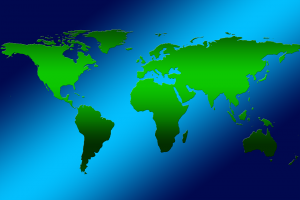Finland tops the chart of nations making social progress with the United States trailing 18 ranks behind.
The United States ranked 19th with a Social Progress Index score of 84.62, remaining in the high tier. The score is up from 82.85 in 2015 and 82.77 in 2014, though the U.S. ranked 16th in both of those indexes.
The quality of life for youths around the world lags behind their elders. Shorter life expectancies and higher birthrates in countries with low social-progress levels skew such living conditions toward youth.
Social Progress Imperative’s (SPI) 2016 Social Progress Index details how nations across the globe compare to one another in terms of basic human needs, foundations for well-being and opportunity. Index methodology defines basic human needs as things such as nutrition, access to medical care, water and sanitation. Access to basic knowledge and environmental quality are examples of foundations of wellbeing, while personal freedoms, tolerance and inclusion are represented in opportunity.
The 2016 index includes 133 countries representing 94 percent of the world population. An additional 27 countries are included for at least three-quarters of metrics, raising the represented portion of the world’s population to 99 percent.
More than three-quarters (78 percent) of individuals ages 0 to 24 live in countries in a very low, low or lower middle progress tier. Meanwhile, 72 percent of individuals aged 25 to 54 live in such nations, while 61 percent of those aged 55 and older are in lower-tiered countries.
High-performing countries, unlike youth-heavy low-performing nations, tend to have age-balanced populations with a relatively equal number of people ages 24 and below, 25 to 54 and 55 and older. Nearly 40 percent of the world’s population of individuals ages 55 and older lives in countries with upper-middle classifications or above.
China (lower-middle score) and India (low score), heavily impact the index with a combined population of over two billion. High-performing countries such as Finland and Denmark, on the other hand, have relatively small populations.
The world average rating of 62.88 would place 80th overall between Kyrgyzstan and Mongolia in the lower-middle pool. Last year’s rating average of 61.0 would have ranked 84th, also in the lower-middle tier. A spokesperson explained that SPI does not make year-to-year comparisons due to methodological changes.
Young people worldwide have a weighted score of 60.15, which would rank 93rd among countries. Those ages 55 and older, however, have a weighted score of 67.63, which would rank 59th.
Twelve countries, all with scores of 87 or greater, are defined as having very high social progress, up from 10 nations each in 2015 and 2014. They are:
1. Finland, 90.09;
2. Canada, 89.49;
3. Denmark, 89.39;
4. Australia, 89.13;
5. Switzerland, 88.87;
6. Sweden, 88.80;
7. Norway, 88.70;
8. Netherlands, 88.65;
9. United Kingdom, 88.58;
10(tie). Iceland, 88.45
10(tie). New Zealand, 88.45; and,
12. Ireland, 87.94
To read the full index, visit: http://www.socialprogressimperative.org/global-index/
